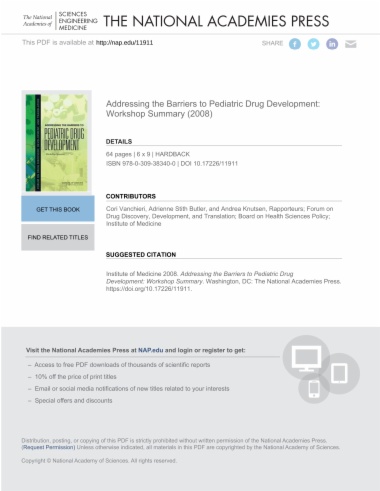

Decades of research have demonstrated that children do not respond to medications in the same way as adults. Differences between children and adults in the overall response to medications are due to profound anatomical, physiological, and developmental differences. Although few would argue that children should receive medications that have not been adequately tested for safety and efficacy, the majority of drugs prescribed for children—50 to 75 percent—have not been tested in pediatric populations. Without adequate data from such testing, prescribing drugs appropriately becomes challenging for clinicians treating children, from infancy through adolescence. Addressing the Barriers to Pediatric Drug Development is the summary of a workshop, held in Washington, D.C. on June 13, 2006, that was organized to identify barriers to the development and testing of drugs for pediatric populations, as well as ways in which the system can be improved to facilitate better treatments for children.